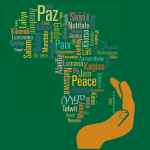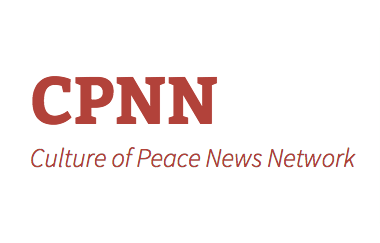VISIT TO LATIN AMERICA
As the coordinator of CPNN, I was invited recently to take part in peace seminars in Mexico and Brazil. Along with a conference that I attended at the end of 2015 in Colombia, it has given me the chance to appreciate the great advances being made towards a culture of peace in Latin America.
In particular I have been impressed by the Latin American advances in participative budgeting as a form of democratic participation, in mediation and restorative justice, in the struggle against violence against women, and in tourism for peace. Also, it is Latin America that has given us the World Social Forum. Of course, the peace process in Colombia has been the leading peace process in the world in the last few years. And now there is movement towards the development of networks of city peace commissions in Brazil and Mexico.
Participative budgeting allows citizens to debate and define policies, by deciding each year on the city’s budget priorities for investments and services. This stimulates the involvement of the citizenry in the public good and the city’s management. The process was started ten years ago in the Brazilian city of Porto Alegre and has since spread to many cities around the world. My visit this month included the cities of Santos and Curuaru in Brazil as well as Mexico City, and CPNN this month carries articles about participative budgeting in each of those cities.
Brazil is a leader worldwide in the development of restorative justice, as we have seen last October in CPNN. This month we carry an article about progress in restorative justice in the southern region of Brazil. Similar systems of mediation as alternative justice are increasingly used in Mexico as we have seen in previous articles in CPNN in July and November, 2016, and we carry an article this month from Chiapas, the southern region of Mexico.
I was impressed during my visits by the high level of violence against women, and the increasing struggle in those countries to stop the violence. In Brazil, the struggle is carried out in the framework of a law named after one of the victims, Maria da Penha, while in Mexico, it is in the framework of the General Law for Women’s Access to a Life Free from Violence. In Colombia, one of the initiatives is being carried out in the framework of traditional indigenous rituals. In a related note, we carry an article from Colombia this month about the creation of a Council of Indigenous Women as a integral part of the peace process in that country.
Latin America is also a leader for peace tourism. This will be considered in October at the Latin American Congress of Tourist Cities, entitled "Constructing Peace through Tourism." In this regard we carry stories this month about tourism in Puebla, Mexico, and the development of tourism as a contribution to the peace process in post-conflict zones of Colombia.
The World Social Forums, which began in Brazil, can be considered as the most important global gatherings for a culture of peace. CPNN has previously carried stories about the World Social Forum Belem (2009) in Brazil, as well as the last Forums in Canada and Tunisia. Next year the forum returns to Brazil where preparations are being made in Salvador de Bahia.
Finally, I want to mention that progress is being made in Mexico and Brazil towards networks of city peace commissions. A number of commissions were established in Brazil during the International Decade for a Culture of Peace and we carry an update on their activities, including the most city peace recent commission in Santos, which is now giving consideration to include the culture of peace activities by the youth of that city such as those previously described in CPNN. As I write this, a network of city peace commissions is being established in Pernambuco, Brazil, and the Mexican Association of Mayors is considering a proposal for city peace commissions at their annual meeting.
I would like to thank my friends in Mexico, Brazil and Colombia for inviting me to visit and take part in their development of a culture of peace, and I am sure we will hear much more from them in the future.

